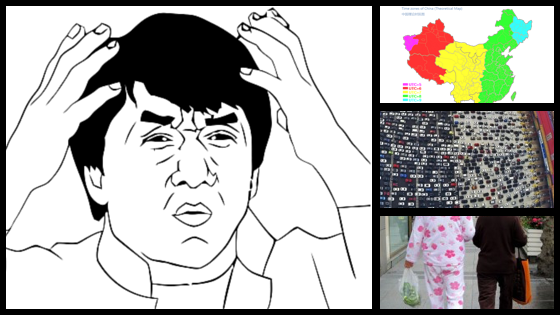Meanwhile in China: Strange Stories & The Language Behind Them Vol. 2
Read more for five incredible stories straight from Mainland China, where crazy knows no bounds. Read More

Read more for five incredible stories straight from Mainland China, where crazy knows no bounds. Read More

It’s been twenty years since the first Independence Day movie and in a few short weeks the second installment, titled Independence Day: Resurgence, with the tagline, “We had twenty years to prepare. So did they” will be released.
As you probably know, movie titles become a bit lost in translation when it goes from English to Chinese — it even varies by the country! Read more for the translations on the movie posters for Independence Day: Resurgence — they are pretty funny. Read More

If you’ve been learning Mandarin for a while, then you probably know a thing or two about KTV. You probably know that KTV stands for Karaoke Television and is popular not just in China but in many countries across Asia. You may also know it differs vastly from Western-style karaoke where you are typically invited onstage to sing your favorite songs in front of an audience of strangers. Does that sound intimidating? Well lay your worries to rest: KTV is not designed to test your inner stage-fright limits. Instead, it involves booking your own private room with your best friends or colleagues, and singing to your heart’s content for as long as you desire (with some booze involved, if that’s your thing) whether it’s just for one hour or an all night-long marathon session.
More often than not, Mandarin learners who do not feel confident in their language or singing ability tend to decline offers to go to KTV. By doing so, you are shutting yourself out of a culturally important (and fun!) activity and an excellent opportunity to improve their Mandarin language skills. But have no fear: as the ever popular Taiwanese group May Day (五月天) famously sang “Wǒ bù yuàn ràng nǐ yīgè rén|我不愿让你一个人” | I won’t leave you on your own any longer when it comes to KTV. Read more for the 3 things you need to know to optimize your next KTV experience. Read More

Surrounded by the seas and enclosed by rugged mountains, the island of Taiwan has captured the imagination of people for generations; from Portuguese explorers who labelled the island Ilha Formosa (the beautiful isle) to present day tourists from around the world. Today, travelers continue to be impressed by all that the small island offers them, most notably the famous night markets that decorate the city streets every night. The sights and smells that permeate these food stalls are guaranteed to make your mouth water. At the market you’ll find delicious classics like bubble milk tea |珍珠奶茶 | zhēnzhū nǎichá , braised pork on rice | 滷肉飯 | lǔ ròu fàn, steamed pork belly buns | 割包 | guàbāo, and beef noodle soup | 牛肉麵 | niúròu miàn, as well as more adventurous selections like pig’s blood cake | 豬血糕 | zhūxiě gao, thin noodles with intestine | 大腸麵線 | Dàcháng miàn xiàn, and stinky tofu | 臭豆腐 | chòu dòufu (I guarantee, it tastes better than it smells). The list goes on and on; there’s no shortage of food to try. Strolling the many night markets is one of the best ways to define the term active eating; testing your patience as you wait in line for the most popular food stalls, just as the locals do, is truly a cultural experience. Read more to find out why a trip to Taiwan should be about more than just its night markets snacks, popularly termed “xiǎochī | 小吃”. Read More

If you’ve ever read or been a part of a forum on the subject, you know that it has been decided that using 你好| nǐ hǎo isn’t a very native way to greet someone in Chinese. But relaaaaax — if you have been strictly using Ni Hao, it’s no big deal. But if you really want to sound more native, read more for our list of useful greetings that are great to have in your arsenal.